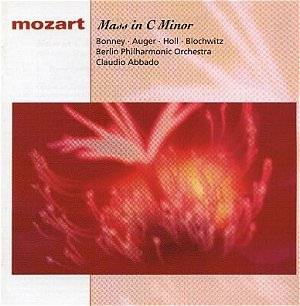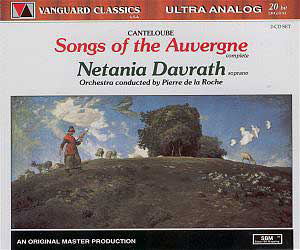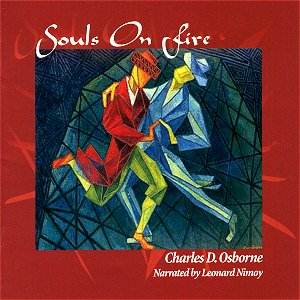 Composer: Wolfgang Amadeus Mozart
Composer: Wolfgang Amadeus Mozart
Works: Mass in C minor, K427
Performers: Barbara Bonney (soprano), Arleen Auger (soprano), Hans Peter Blochwitz (tenor), Robert Holl (bass), Rundfunkchor Berlin (Dietrich Knothe, Chorus Master), Sigurd Brauns (organ), Berlin Philharmonic Orchestra, cond. Claudio Abbado
Recording: 1991, DDD
Label: SONY SBK89777
Wolfgang Amadeus Mozart’s Mass in C minor, K427, stands as a profound testament to the composer’s genius, a work left tantalizingly unfinished that encapsulates both personal turmoil and artistic ambition. Composed in the early 1780s, amidst the upheaval of his personal life and a burgeoning independence from the constraints of his Salzburg upbringing, this mass reflects the duality of his experiences. It is both a deeply spiritual endeavor and an artistic exploration that, while incomplete, showcases Mozart’s extraordinary ability to blend operatic expressiveness with liturgical solemnity.
Claudio Abbado’s interpretation with the Berlin Philharmonic and Rundfunkchor Berlin is marked by a meticulous attention to detail, allowing the multifaceted nature of the score to shine through. The performance opens with the arresting choral introduction, where the trombones evoke a Masonic gravitas, setting a rich, dark fabric that is immediately compelling. The solo passages, particularly in the “Laudamus Te,” reveal the exceptional artistry of Barbara Bonney, whose voice carries both clarity and warmth, intertwining beautifully with Arleen Auger in the demanding duet “Domine Deus.” Their blend achieves an ethereal quality, deftly navigating the intricate lines while maintaining textural integrity.
The orchestral execution under Abbado’s baton is equally impressive. The chamber-sized Berlin Philharmonic complements the smaller choir, allowing for a crystalline rendition of the score. The precision of the string section in the “Et incarnatus est” is noteworthy, with the oboe and flute weaving a delicate tapestry of sound that frames the soprano’s soaring lines. Abbado’s choice to highlight the racing semiquavers in the brass during “Gloria in Excelsis” and the woodwinds in the “Credo” ensures that the buoyant energy of Mozart’s writing is fully realized without overwhelming the vocalists.
While there have been more recent recordings that delve into the drama and emotional intensity of the Mass, such as those by John Eliot Gardiner or William Christie, Abbado’s approach is grounded in a sense of balance and elegance. His performance may be described as “safe,” yet it is also deeply satisfying, adept at capturing the essence of Mozart’s intentions. The engineering quality of this recording is commendable, capturing the spatial dynamics of the performance and allowing each voice and instrument to be distinctly heard, a feat that enhances the overall listening experience.
The Mass in C minor remains a work that challenges listeners and performers alike, presenting a collage of styles and emotions that never fully coalesce into a singular narrative. Yet, Abbado’s interpretation manages to celebrate the beauty and complexity of Mozart’s composition, presenting a performance that is both reverent and engaging. The recording, though short at just under 53 minutes, serves as a compelling introduction to this unfinished masterpiece, leaving one yearning for the completion that Mozart never achieved. This performance stands as a strong recommendation for those seeking to explore the depths of Mozart’s choral writing, revealing a vibrant tapestry of humanity and divine aspiration that continues to resonate.



